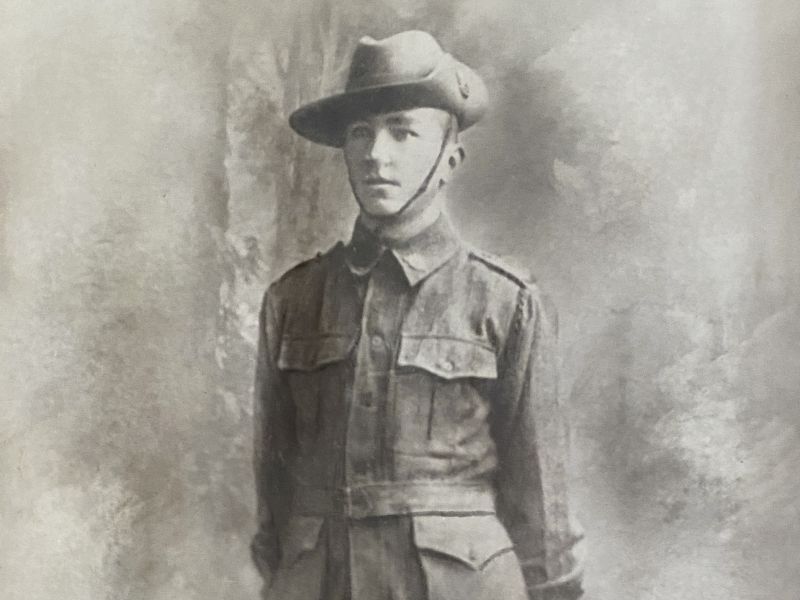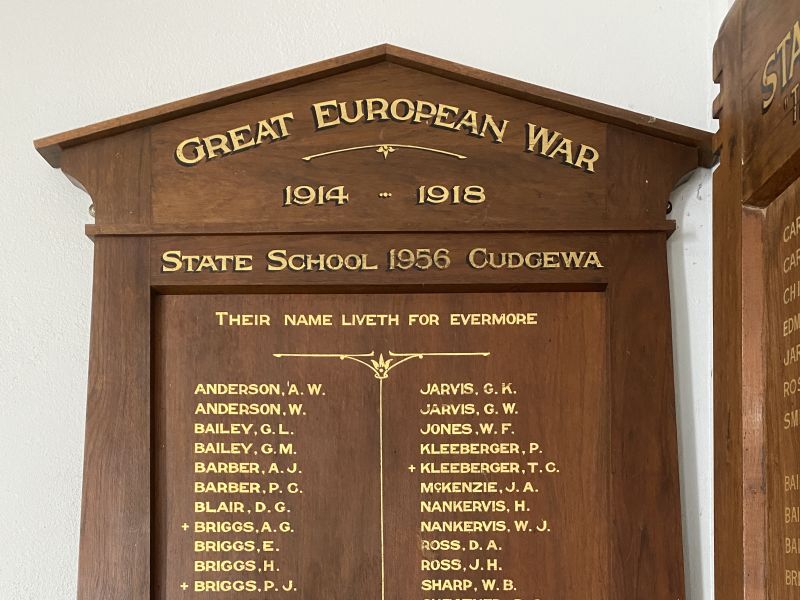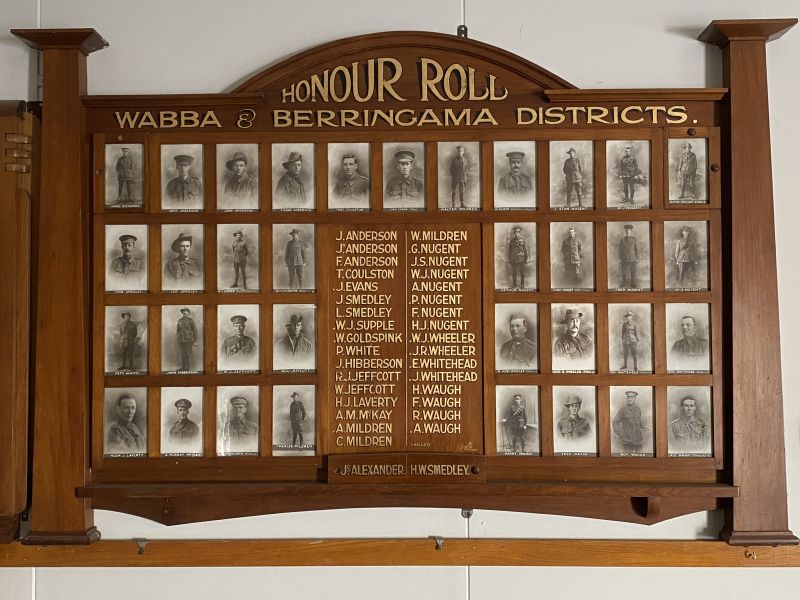Eric Victor John Whitehead
Eric was born on the 11th of January, 1870, at Berringama to John and Agnes (née Harris) Whitehead, the eldest of four children.
In growing up, Eric attended the Cudgewa State School, with one of his teachers being Mrs William Blair. As he grew older, he helped more on the family farm at Berrigama. His father ran sheep on the property until the 1912 rabbit plague ate all the feed in the paddocks. The family moved to live in the Wabba House where they ran both sheep and cattle.
Eric enlisted at Tallangatta on the 2nd of February, 1916, being initially allocated to D Company of the 37th Battalion and given the Regimental Number 1307. The battalion embarked on HMAT A34 Persic at the Port of Melbourne, arriving in Plymouth, England on the 25th of July, 1916. He was transferred to the 2nd Training Battalion billeted at Perham Downs (nicknamed Perishing Downs by the soldiers) north of Salisbury. His stay was short-lived as he was admitted to the Delhi Military Hospital with measles.
After being discharged from hospital, he transferred to the 6th Battalion and then proceeded overseas to France where he joined the battalion. On the 1st of October, 1917, the battalion moved from the Steenvoorde area in northern France by bus to the Dickebusch Huts, Belgium. It was in this area that the battalion underwent offensive operations against the German forces. On the second day of this operation, the 4th of October, 1917, he was initially reported as being wounded in action however it was altered to being killed in action. Eric’s body was never found so he is remembered at the Menin Gate Memorial in Ypres, Belgium.
In early 1918, John and Agnes received a letter from Eric’s platoon officer, Lieutenant Percival Louis Rauert;
"6th Battalion A.I.F. Feb 1918
At present No. 1 Command Depot
Sutton Veny, England
Dear Mr and Mrs Whitehead and family
It is with the deepest regret I give you a few details of your brave and noble sons doing in action a being his platoon office. I am very sad at heart at losing such a fine young man. Please pardon the long delay but I have also been wounded and only the other day got my rolls of addresses. I feel far short of being able to give the really grand account of his noble doings that I would like to. It is so hard to write one's feelings on paper. We were in the big battles on Sept. 20th and Oct 4th 1917 and it was on the latter date amidst the awful bombardment and advance your son gave his grand noble life.
Brave is not a grad enough word to describe him as and really dear people it makes me too sad at heart to try and write about it, to think my noble boys have gone for ever [sic], I always look upon them as much mine as anybodys [sic] so do please forgive my being very vague account. In action he would go anywhere no matter how terrific the fire and always displayed the greatest gallantry. When he was out of the line, he was such a grand and manly boy, always in a happy mood and so willing to do anything. I shall always have the most pleasant recollections of him, and the others in our nice little platoon concerts which we had quite often and the following verse which I also love is so appropriate:-
Not dead, they cannot die
While in our hearts they live
May be some proud ally
A sepulchre will give
May be a hostile sky
Their helpless dust will grieve
But yet they cannot die
While in our hearts they live.
So [illegible] that in your grief you will be comforted by the Greatest Power.
With every best wish to you all
Believe me to [illegible]
Yours very sincerely
P Louis Rauert"
Six of Eric’s cousins (or second cousins) were killed in action during the war.
Eric is remembered on the Australian War Memorial Roll of Honour, the Wabba and Berringama Districts Pictorial Honour Roll, the Cudgewa State School Roll of Honour, and the Corryong War Memorial. For his service during the First World War, he was awarded the British War Medal and the Victory Medal.

 Stephen Learmonth
Stephen Learmonth

